
THE MISSION
Blend two photos to create a double exposure
Time needed 20 minutes
Skill level Beginner
Kit needed Affinity Photo
Double-exposures are among the easiest of effects to try out on your photos. The act of blending two images into one is not only eye-catching, but also allows you to explore conceptual themes in your photography.
Through your choice of photos, you can create conceptual images that spark ideas and pose questions. You could evoke an atmosphere of big-city melancholy like this, or juxtapose themes.
The technique is simple in Affinity Photo, and offers an ideal introduction to several layer tools and tricks. We begin by copying one image on top of another, so that they each sit on their own layer. Once done, we can use a layer blending mode to merge them, so that the lighter parts of each image show through, like an old film camera double exposure.
After this, we can fine-tune the blend by tweaking the positioning and using a layer mask to control which parts are visible. Finally, we can add a black-and-white effect to help everything gel together. The real skill here is in choosing images that work in harmony with one another. Strong, bold shapes, like the silhouetted couple and the building here, tend to work very well – you can download both start images (double_1.jpeg and double_2.jpeg) for free from the link on the left. But it’s worth experimenting with different photos in your own image library to see which works best.
This story is from the January 2022 edition of PhotoPlus : The Canon Magazine.
Start your 7-day Magzter GOLD free trial to access thousands of curated premium stories, and 9,000+ magazines and newspapers.
Already a subscriber ? Sign In
This story is from the January 2022 edition of PhotoPlus : The Canon Magazine.
Start your 7-day Magzter GOLD free trial to access thousands of curated premium stories, and 9,000+ magazines and newspapers.
Already a subscriber? Sign In
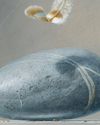
The Art of Copying Art - James Paterson shows you how to use your Canon gear to capture artwork and paintings the right way with simple camera and lighting skills
Whether you want to capture a painting like the above, digitise old prints or reproduce any kind of canvas, there's real skill in capturing artwork with your camera. Not only do you need the colours to be accurate, you also need to master the spread, angle and quality of the light to minimise glare and show the work at its best.This painting by the artist Bryan Hanlon has a wonderfully subtle colour palette. To reproduce the painting in print and digital form, it needs to be captured in the right way.
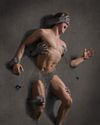
Fright night
Canon photographer and digital artist Alexander loves to craft incredible fantasy scenes with a spooky horror twist

Sharpen your shots with DPP
Sharpening a digital image also increases contrast at the edge of details

CANON ImagePrograf PRO-1100
Deeper blacks, better bronzing, greater lifespan and 5G Wi-Fi -Canon's new printer is full of new tech, says
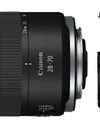
Canon's new 'kit lens' is actually a half-price f/2.8 trinity lens!
The Canon RF 28-70mm F2.8 IS STM lacks a red ring, but borrows premium features from its L-series siblings

DREW GIBSON
Pro motorsports photographer Drew on why he hasn't (yet) switched to Canon's mirrorless system, why old-school techniques can be the most reliable, and the lessons learned from more than a decade shooting the world's biggest car brands
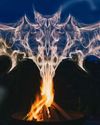
Up in smoke
Make a smoky shape in Affinity Photo and get to grips with the amazing Liquify Persona under the guidance of James Paterson
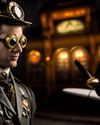
Expand your creativity with Generative Fill
Photoshop's Al-powered feature brings revolutionary new tools to image editing. James Paterson reveals all...
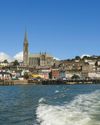
Turn your images into vintage postcards
Wish you were here? Sean McCormack explains how you can give your summer photographs a vintage postcard look
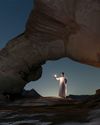
The Angel Malibu
Light painting an American movie producer in the Wadi Rum Desert in Jordan was a highly unlikely evening out for David!